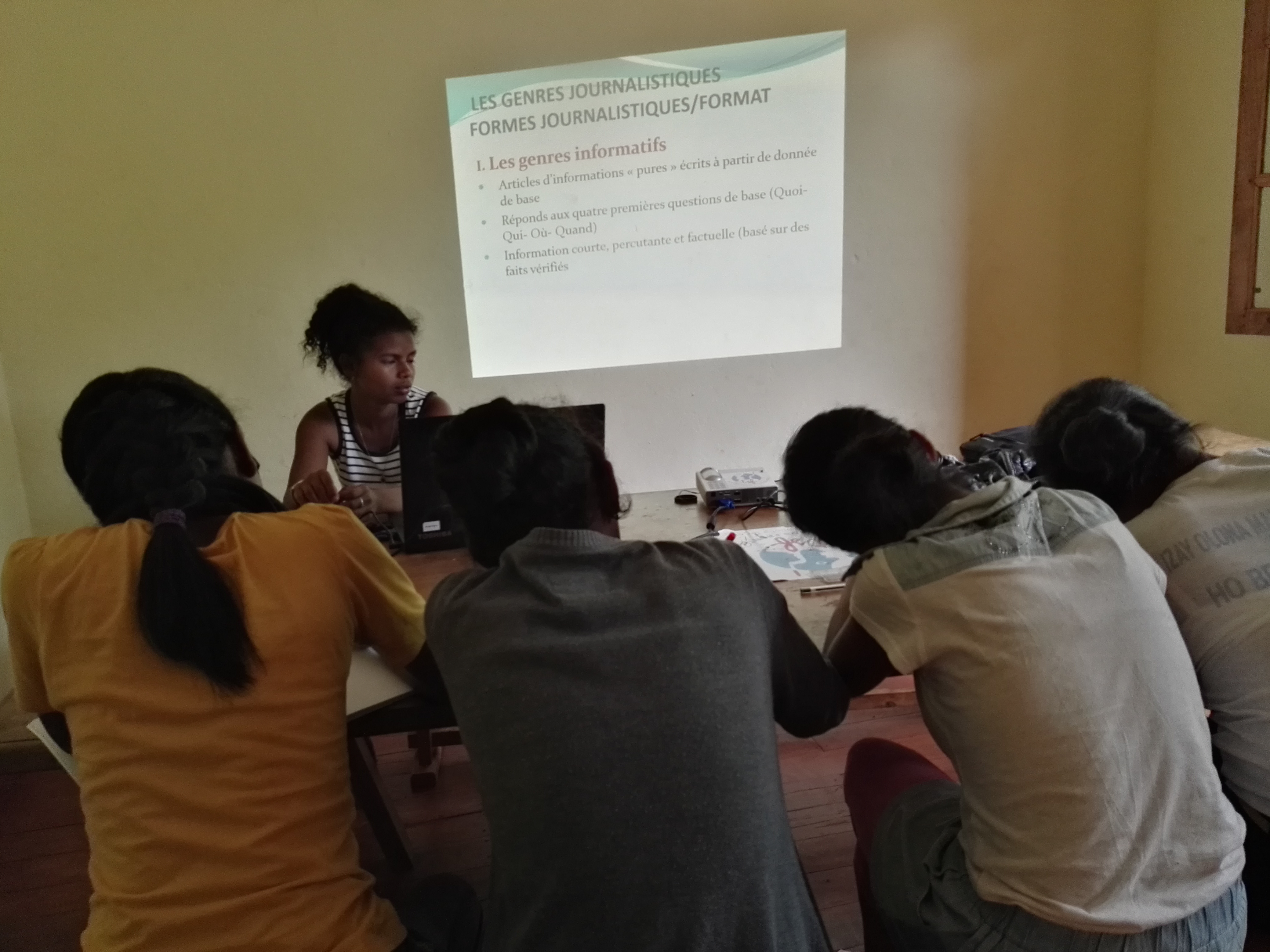The only problem is that this might not be your story if you live in a remote area without internet connection, where doing research online is impossible because there is no sufficient access to new technologies, and there are no courses you can attend or internships you can do.
However, this doesn’t mean you should give up on your dreams. At Télécoms Sans Frontières (TSF) we believe everyone should have a chance to live their dreams, no matter what the local context is. It’s with this spirit that our IT Cup centre in Miarinarivo (Madagascar) just launched the journalism club; a weekly activity targeting students between 14 and 22 years old, aimed to give them the opportunity to explore what it is like to be a journalist. Theoretical classes complemented by practical workshops, individual projects and interactive discussions with professionals working in the sector, provide participants with the knowledge, means, and skills to take their first steps in the field they like.
Participants are really active, some, for example, wrote an article on the occasion of International Volunteers Day last 5 December, others are reporting on local news. To make the course even more engaging, they even have the opportunity to do bimonthly reports at the local RADIO AMI, through which they will also have a chance to be trained on radio news techniques. Outside the club hours they even conduct interviews, reports and investigations in the area. All of this thanks to digital technologies. They have tablets they can use to prepare their reports, record their interviews or take pictures for their articles. They also use the computers available at the center to conduct further research and fine-tune the content of their pieces.
Finally, the centre organises regular interactive discussions with professional journalists where students can ask questions and learn more about this fascinating world. Recent discussions saw the participation of Mr. Alfred Randriananja, journalist for the national press and Mr. Edgard, communication responsible at the Miarinarivo College and former journalist for the Madagascar Broadcasting System (MBS). Through these meetings, students have the opportunity to learn more about journalism and essential concepts of quality journalism such as the right to use images as well as how to recognize and verify the quality of the sources used. This strong focus on the quality and reliability of the information gathered and reported is particularly relevant in a context in which students use mainly social media as source of information.
Thanks to the complementary theoretical discussions, practical workshops, and real world experiences from the journalism field, by the end of the year, students will be able to manage their own blogs and feed them with their own articles, reports and interviews.
New journalism club started at the IT Cup centre in Miarinarivo
“I want to become…a doctor, an engineer, a scientist, a teacher or…a journalist.” This is what every kid will say one day, when they decide which path to take for their future professional career. Then they will start asking for the help of their parents and friends, looking for information, videos or courses online, they will start their own small projects at home, or with a group of friends, they will look for schools, internships or any other experience that can help them achieve their dream.







